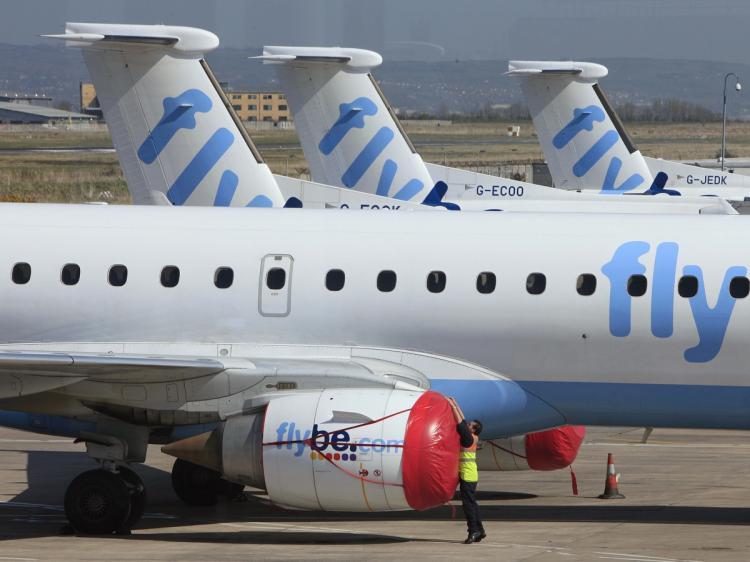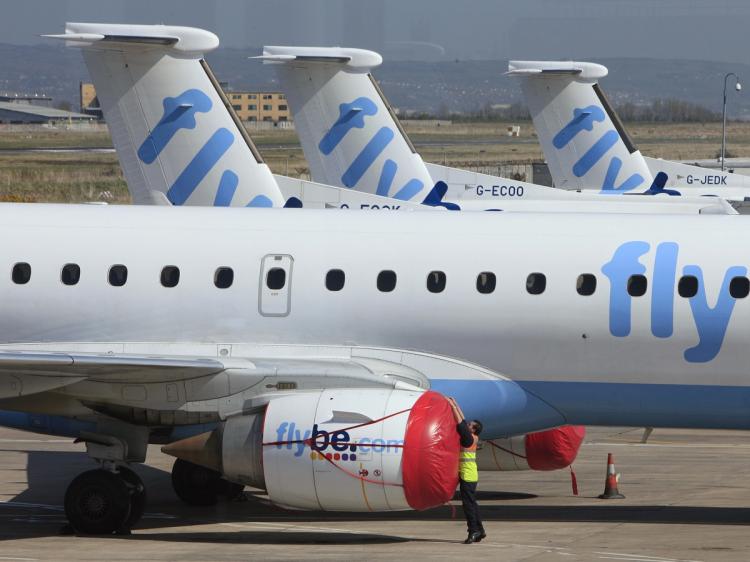European Transport ministers held a special meeting in Brussels on preventive measures in the event of a volcano eruption, coinciding with a new ash volcano plume from Eyjafjallajökull, which caused six hours of flight suspensions across Ireland.
Transport ministers of the European Union discussed measures designed to prevent major travel disruptions during future volcano eruptions.
“The question is not if, but when, this kind of crisis will happen again. It could be next month; it could be in 50 years’ time. But volcano eruptions and other crisis events do not respect any rules, so we need to be more flexible and agile in our response,” European Commission Vice President Siim Kallas said in a statement.
The officials discussed proposals for a coordinated European action to review safety assessment for volcanic activity at the EU level, and to revise ICAO (International Civil Aviation Organization) guidelines by September 2010. Certain provisions of the plan, called Single European Sky II, will be fast-tracked, including the establishment of pan-European efforts to mobilize alternative transportation modes.
The package was proposed by Vice President Joaquín Almunia (in charge of competition and state aid) and Commissioner Olli Rehn (responsible for economic and monetary affairs), and approved by the College of Commissioners on April 27.
A new volcanic ash plume spread across Ireland, Scotland, and part of northwest U.K., shutting numerous airports, the first closure of European airspace since its reopening over 10 days ago due to a volcanic eruption in Iceland. Flights crossing Northern Ireland and in the Irish Republic resumed after suspension of all air travel from 6 a.m. to 1 p.m. local time. However, airspace over northwest U.K. remained shut into the evening, including Scotland’s Outer Hebrides, which encompasses the airports in Barra, Benbecula, and Campbeltown in Argyll.
Irish Aviation Authority (IAA) announced it would continue to monitor the movement of volcanic ash, and would issue further updates at early hours on May 5. The IAA advises passengers to continue contacting their airlines’ websites for up to date information on flight schedules.
Closure of airspace was caused by an ongoing eruption of the Icelandic volcano Eyjafjallajökull, which puffed mixed ashes toward Ireland. According to Icelandic officials, in the last few days the plume has been darker and wider than in the preceding week. White steam plumes were rising from Gígjökull, north of the eruption site, with lava. Latest observations on the volcano indicate possible new disruptions as the ash column appears to be taller than that from last week.
Eyjafjallajökull, which caused the cancellation of over 100,000 flights and left more than 10 million passengers stranded, erupted twice in 2010: on March 20 and April 14. Its last eruption was in 1823.
Transport ministers of the European Union discussed measures designed to prevent major travel disruptions during future volcano eruptions.
“The question is not if, but when, this kind of crisis will happen again. It could be next month; it could be in 50 years’ time. But volcano eruptions and other crisis events do not respect any rules, so we need to be more flexible and agile in our response,” European Commission Vice President Siim Kallas said in a statement.
The officials discussed proposals for a coordinated European action to review safety assessment for volcanic activity at the EU level, and to revise ICAO (International Civil Aviation Organization) guidelines by September 2010. Certain provisions of the plan, called Single European Sky II, will be fast-tracked, including the establishment of pan-European efforts to mobilize alternative transportation modes.
The package was proposed by Vice President Joaquín Almunia (in charge of competition and state aid) and Commissioner Olli Rehn (responsible for economic and monetary affairs), and approved by the College of Commissioners on April 27.
A new volcanic ash plume spread across Ireland, Scotland, and part of northwest U.K., shutting numerous airports, the first closure of European airspace since its reopening over 10 days ago due to a volcanic eruption in Iceland. Flights crossing Northern Ireland and in the Irish Republic resumed after suspension of all air travel from 6 a.m. to 1 p.m. local time. However, airspace over northwest U.K. remained shut into the evening, including Scotland’s Outer Hebrides, which encompasses the airports in Barra, Benbecula, and Campbeltown in Argyll.
Irish Aviation Authority (IAA) announced it would continue to monitor the movement of volcanic ash, and would issue further updates at early hours on May 5. The IAA advises passengers to continue contacting their airlines’ websites for up to date information on flight schedules.
Closure of airspace was caused by an ongoing eruption of the Icelandic volcano Eyjafjallajökull, which puffed mixed ashes toward Ireland. According to Icelandic officials, in the last few days the plume has been darker and wider than in the preceding week. White steam plumes were rising from Gígjökull, north of the eruption site, with lava. Latest observations on the volcano indicate possible new disruptions as the ash column appears to be taller than that from last week.
Eyjafjallajökull, which caused the cancellation of over 100,000 flights and left more than 10 million passengers stranded, erupted twice in 2010: on March 20 and April 14. Its last eruption was in 1823.






